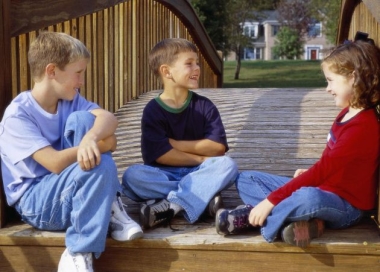By: Diane I. Ferber-Collins MBA, MA, C.A.S.
 Social Skills, Social Cognition and Social Thinking are all terminology used to describe the social abilities. As our students develop physically, cognitively and emotionally, their social development also follows a developmental trajectory. For many children, the full repertoire of social skills come easily through everyday interactions with adults and peers, but it is still important for educators and parents to reinforce this casual learning with direct and indirect instruction. For other children, direct instruction and support in navigating the trials and tribulations of skill acquisition are even more important. While there are direct interventions for children with documented difficulties in this arena, including children on the autism spectrum, even more ‘typical’ children can benefit from conscious support.
Social Skills, Social Cognition and Social Thinking are all terminology used to describe the social abilities. As our students develop physically, cognitively and emotionally, their social development also follows a developmental trajectory. For many children, the full repertoire of social skills come easily through everyday interactions with adults and peers, but it is still important for educators and parents to reinforce this casual learning with direct and indirect instruction. For other children, direct instruction and support in navigating the trials and tribulations of skill acquisition are even more important. While there are direct interventions for children with documented difficulties in this arena, including children on the autism spectrum, even more ‘typical’ children can benefit from conscious support.
As experts have pointed out, perhaps the most difficult part for parents and teachers is toaccept that setbacks and uncomfortable situations are part of the growth process; and to recognize that rather than “bubble” a child or swoop in to “fix,” we can use these situations to guide and help empower each child to create his/her own solutions and strategies that will last a lifetime.
Strongly developed social skills will impact a child’s ability to adapt to change and variable situations, as well as to provide resilience across settings. The child with good social skills is more likely to have a positive self image and to meet challenges with confidence. As they mature, these children will have better developed peer resistance and better conflict resolution skills, which also impact tolerance and acceptance of diverse groups. In turn, these areas of comfort will inform life choices into adulthood.
What is “Social?” The ability to share space with others effectively, which requires a complex set of capabilities.
The required capabilities for positive social interactions involve complex and numerous skills. For example, we rely on being able to interpret others’ perspectives, including their emotions, point of view, thoughts, beliefs, prior knowledge and intentions, gleaned and remembered from previous interactions, and read from body language and facial expressions. Successfully sharing space with others also relies on our own ability to reflect on, sort through, process and regulate our own reaction and to adapt across situations. For young children, it requires the developed ability to share one’s experience of an object or event (joint attention) and to successfully wield “pragmatic” everyday informal language. There are hundreds of social cognition and communication skills – from initiating conversations, reading body language and expression, understanding of abstract and inferential communication, to adequate attention and motivation.
Related Articles:
- Social Lives and Teens with Autism (autismspeaks.org)
- How to Teach Social Skills to Children (socyberty.com)
- Social Skill Interventions for Students with Autism (studentswithautism.wordpress.com)
- Empathy vs. Social Skills (eoghann.com)
- Aspergers – Worrying what the future holds (aspergersinfo.wordpress.com)

